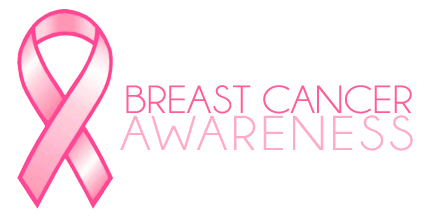Nutrition plays such an important role in our pregnancies and post-partum periods. Breastfeeding requires time…

Breast Cancer: Treating Pain in Recovery
Breast Cancer Awareness month is here. I want to discuss the milieu of pain symptoms that develop after treatment for breast cancer. A recent article I found examined the prevalence of myofascial pain after treatment for breast cancer. For many years now, I have treated women after breast cancer treatment. From chemotherapy and radiation, to mastectomy and lumpectomy, to reconstruction or no reconstruction – women have pain afterward. What is unfortunate is they often must be the one to suggest something be done about it. Medical professionals are not helping these women navigate the system after their treatment. They are given the general impression: “Congratulations! Your life is saved, pain is just part of that. Good luck”.
Breast Cancer Treatment
Upon reading this article by Torres Lacomba, et al., I was happy to know someone was looking at exactly what I see as a physical therapist within the population of breast cancer survivors. My experience is that breast cancer treatment leaves pain in its wake. Pain is found throughout the neck, shoulders and back leaving muscle dysfunction and scarring. The authors of the study looked at 116 women who had undergone treatment for breast cancer (mastectomy, lumpectomy, chemotherapy or radiation). One year after treatment, almost 50% of the 116 women had Myofascial Pain syndrome. Myofascial pain syndrome is a pain syndrome characterized by trigger points in muscles that refer pain to sites in the body away from the trigger point and cause muscle dysfunction.
Trigger Points
What does that mean for women who have had treatment for breast cancer? First, it means you are not alone! Many of you will develop pain that might seem strange. For example, one muscle found to have trigger points in this study was the infraspinatus muscle in the shoulder. This muscle can refer pain commonly into the wrist, mimicking Carpal tunnel syndrome. The wrist pain that your physician may tell you is unrelated to cancer treatment isn’t unrelated at all! It isn’t carpal tunnel syndrome either. It is a common and very treatable condition: myofascial pain. Physical Therapists are the experts in assessment and treatment of myofascial pain syndrome.
These trigger points not only cause referred pain, they also can cause muscle incoordination. This will greatly limit the ability to get back to functional activities that were not painful before cancer treatment. What patients often share with me, is “I’ve had cancer, so maybe I won’t get back to tennis or swimming the way I used to.” NO WAY!!!! I would never tell a patient they can’t do something that they want to do. Addressing these muscle trigger points and retraining the musculoskeletal system can absolutely help you return to the activities you love.
Treating Pain
Treating these pesky trigger points begins with assessment of you as an individual. Each person is different in their presentation. Their surgeries are different and their lives and functions are different, so we must look at each person individually. Identifying these trigger points and the resulting movement patterns that are affected by them allow me as a physical therapist to determine where your pain may be coming from.
Finding the source of the pain is important, as is specific treatment of the source of pain. Manual therapy is very useful in treating myofascial trigger points. This can mean manual trigger point release or release with dry needling (to learn more about Dry Needling click here). As a physical therapist my goal is always to give patients as many tools as possible so they can learn to manage their pain themselves.
In the end, the goal is for patients to perform the activities and functions that they want, with less pain and less worry. Quality of life naturally improves and patients can stop saying I can’t and begin saying I can. That is a powerful mantra. I can. If you or someone you love is suffering from pain after cancer treatment, share this information with them. Empower them with knowledge to give the ability to change their language and their life for the better.
- Sarah Dominguez, PT, MSPT, CLT, WCS, CMTPT
References:
Torres Lacomba M, Mayoral del Moral O, Coperias Zazo JL, Gerwin RD, Goni AZ. Incidence of myofascial pain syndrome in breast cancer surgery: a prospective study. Clin J Pain. 2010;26(4):320-325



